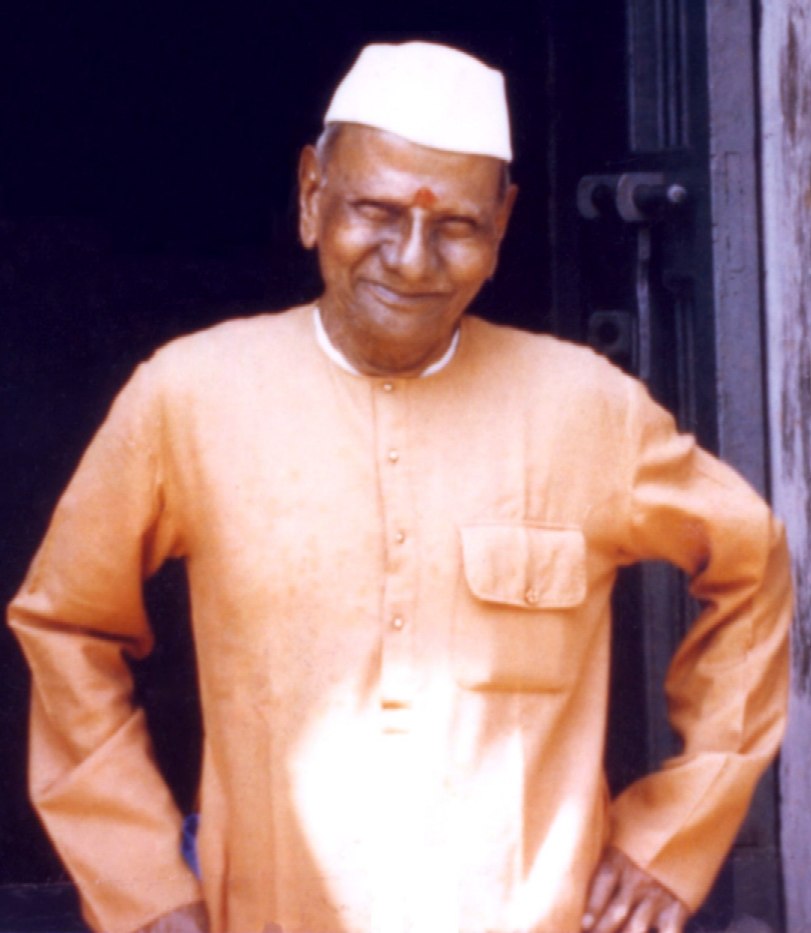
During the pilgrimage made on September 27, 2009 to the top of the sacred mountain Soratte, where there was the temple of Apollo Sorano and today there is the hermitage of San Silvestro, the pope contemporary to the emperor Constantine (the one who liberalized and made institutional the Christianity), by one of my companions was asked a point-blank question "... but did you reach yourself?".
At that moment I felt that in any way I replied it would have been improper ... since if I had said yes, this statement would have implied the existence of an "I" that claims to have reached itself (ie the lower self that reaches the I superior as the questioner intended). If I had said no, I would have denied an obvious truth anyway ... how can we not be the Self, always and in any case?
Clearly, as a good monkey and a good archaeologist of the Self, I "got away", inspired by Apollo, denying and affirming at the same time, and at the same time pointing out how each of us can only be the Self and that the desire to being it is only an obstruction ... and the best thing - as Ramana Maharshi said - is to remain calm and quiet without trying to reach a "something", centered in the sense of the I, which is our true identity and nature. While the self-images that appear in the mind, and the identification with a perfectible self, are only a projection of the separative tendency, an illusion ....
I therefore welcomed with great joy the following text, sent to me by Caterina Regazzi on the same evening of the aforementioned speech, taken from the text "I am that" by Nisargadatta Maharaj:

V .: ... the memory of those wonderful experiences haunts me. I want to try them again.
M .: since you want them you cannot have them. The intensity of desire prevents you from any deeper experience. Nothing precious can happen to a mind that knows exactly what it wants, because nothing it imagines and desires has great value.
V .: so what is it worth wanting?
M .: the maximum, the highest happiness. The absence of desire is the supreme bliss.
V .:… how do you go beyond the mind?
M .: the starting points are many, but they all lead to the same goal. You can start acting selflessly, giving up the fruits of the action, and then abandoning any thought or desire. Here, the key factor is abandonment. Otherwise you can ignore anything you want, think or do by focusing on the "I am" thought, keeping it fixed in mind. Whatever experience you have, stay firmly aware of the fact that everything that can be perceived is transitory and that only "I am" is permanent. Here and now.
Paolo D’Arpini

The author on Mount Soratte
Testo italiano
Durante il pellegrinaggio compiuto il 27 settembre 2009 sino alla cima del monte sacro Soratte, ove c’era il tempio di Apollo Sorano ed oggi esiste l’eremo di San Silvestro, il papa contemporaneo all’imperatore Costantino (quello che liberalizzò e rese istituzionale il cristianesimo), da una mia accompagnatrice mi fu rivolta a bruciapelo una domanda “…ma tu hai raggiunto te stesso?”.
In quel momento ho sentito che in qualsiasi modo avessi risposto sarebbe stato improprio… poiché se avessi detto di sì tale affermazione avrebbe implicato l’esistenza di un “io” che afferma di aver raggiunto se stesso (ovvero l’io inferiore che giunge all’Io superiore come intendeva la questionante). Se avessi detto di no avrei comunque negato una verità evidente… come possiamo non essere il Sé, sempre e comunque?
Chiaramente, da buon scimmiotto e da buon archeologo del Sé, me la sono “cavata”, ispirato da Apollo, negando ed affermando contemporaneamente, ed allo stesso tempo puntualizzando come ognuno di noi non può far altro che essere il Sé e che il desiderare di esserlo è solo un’ostruzione… e la cosa migliore –come diceva Ramana Maharshi- è di restare tranquilli e quieti senza cercare di raggiungere un "qualcosa", centrati nel senso dell’IO, che è la nostra vera identità e natura. Mentre le immagini di sé che appaiono nella mente, e l’identificazione con un io perfettibile, sono solo una proiezione della tendenza separativa, un’illusione….
Ho perciò accolto con grande gioia lo scritto che segue, inviatomi da Caterina Regazzi la sera stessa del discorso suddetto, tratto dal testo "Io sono Quello" di Nisargadatta Maharaj:
V.: …il ricordo di quelle esperienze meravigliose mi perseguita. Voglio riprovarle ancora.
M.: siccome le rivuoi non puoi averle. L’intensità del desiderio ti impedisce ogni esperienza più profonda. Niente di prezioso può accadere a una mente che sa esattamente ciò che vuole, perché niente di ciò che immagina e desidera ha grande valore.
V.: allora, cosa vale la pena di volere?
M.: il massimo, la felicità più elevata. L’assenza di desiderio è la beatitudine suprema.
V.: …come si va oltre la mente?
M.: i punti di partenza sono molti, ma portano tutti alla stessa meta. Puoi iniziare ad agire in maniera disinteressata, rinunciando ai frutti dell’azione, per poi abbandonare ogni pensiero o desiderio. Ecco, il fattore chiave è l’abbandono. Altrimenti puoi ignorare qualsiasi cosa tu voglia, pensi o faccia, concentrandoti sul pensiero “io sono”, tenendolo fisso in mente. Qualunque esperienza ti capiti di fare, rimani saldamente consapevole del fatto che tutto ciò che può essere percepito è transitorio e che solo l’”io sono” è permanente. Qui ed ora.
Paolo D’Arpini


Nessun commento:
Posta un commento
Nota. Solo i membri di questo blog possono postare un commento.